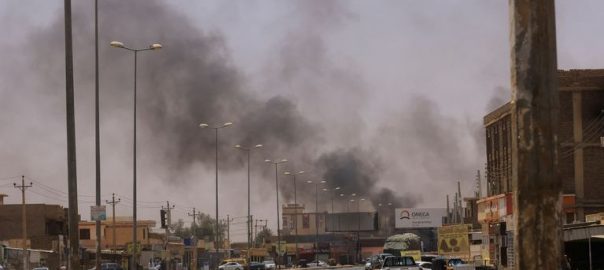April 21, 2023 /Conflict and War/ –The discovery of gold in the Sahel has had a significant impact on the region, both positive and negative. On the one hand, it has brought much-needed economic development and opportunity to some of the poorest countries in the world. On the other hand, it has also led to increased conflict and instability.
The gold rush in Sudan has contributed to the crisis in a number of ways. First, it has led to an influx of people into the region, which has put a strain on resources and infrastructure. Second, it has led to increased competition for land and water, which has exacerbated tensions between different groups. Third, it has provided a source of income for armed groups, which has helped to fuel the conflict.
The gold rush has also had a number of negative environmental consequences. The use of mercury in gold mining has polluted water supplies and damaged ecosystems. The clearing of forests for mining has also contributed to deforestation and climate change.
The gold rush has had a significant impact on Sudan. It has contributed to the crisis, damaged the environment, and displaced people. It is important to find ways to manage the gold rush in a sustainable way that benefits all of the people of Sudan.
Here are some of the specific ways that the gold rush has contributed to the crisis in Sudan:
- Influx of people: The gold rush has led to an influx of people into the region, which has put a strain on resources and infrastructure. The mining areas are often located in remote and rural areas, which lack basic services such as schools, hospitals, and roads. This has led to overcrowding and a shortage of resources, which has exacerbated tensions between different groups.
- Competition for land and water: The gold rush has also led to increased competition for land and water. The mining areas are often located in areas that are already under pressure from agriculture and other uses. This has led to conflict between farmers, herders, and miners over access to land and water.
- Income for armed groups: The gold rush has also provided a source of income for armed groups. Armed groups often control the mining areas and tax miners. This provides them with a source of income that they can use to fund their operations.
- Environmental damage: The gold rush has also had a number of negative environmental consequences. The use of mercury in gold mining has polluted water supplies and damaged ecosystems. The clearing of forests for mining has also contributed to deforestation and climate change.
The gold rush has had a significant impact on Sudan. It has contributed to the crisis, damaged the environment, and displaced people. It is important to find ways to manage the gold rush in a sustainable way that benefits all of the people of Sudan.

